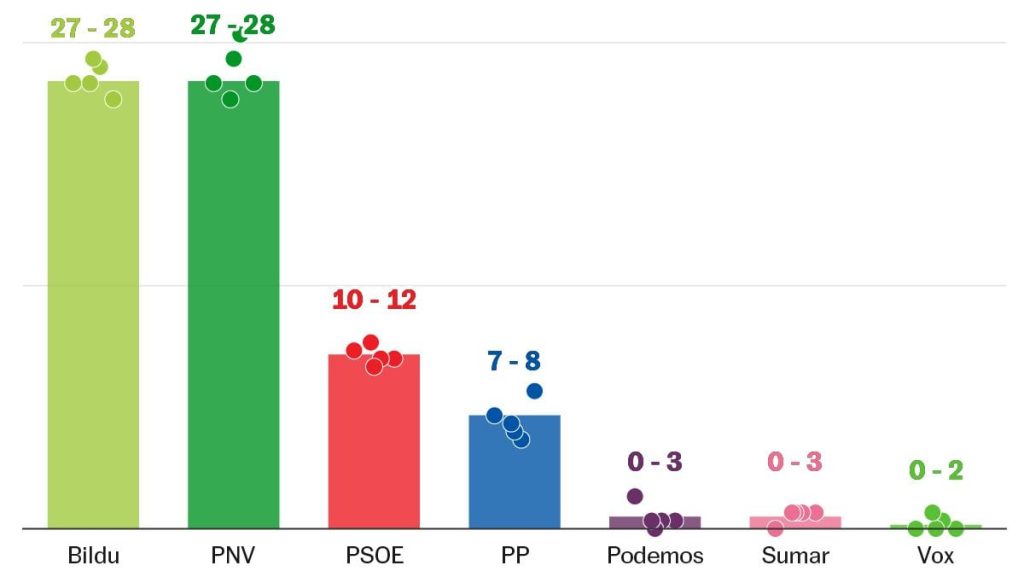In two weeks, the Basque elections will take place on April 21st and from the polls published so far, it can be seen that the Basque Nationalist Party (PNV) appears to be in a strong position to form a government. However, it is still unclear which party will be the dominant force in the elections. According to recent polls, both the PNV and EH Bildu are tied with a projected 27 or 28 seats each. Following them are the PSOE (10-12 seats), the PP (7-8), Podemos (0-3), Sumar (0-3), and Vox (0-2). Although the PNV is leading in votes, EH Bildu seems to have a better chance of winning more seats.
The electoral system plays a significant role in determining the outcome of the elections in the Basque Country. The distribution of the 75 seats in the Basque Parliament among its three provinces is based on population size, with Bizkaia having more seats even though votes there are worth less. This benefits EH Bildu, as they are stronger in Gipuzkoa and have a higher chance of winning more seats. Despite the PNV leading in votes, EH Bildu has a greater chance of coming out on top in terms of seats.
When predicting who will come out as the leading party, simulations based on election models show that the PNV has a 40% chance of winning the most seats while EH Bildu has a 52% chance. Additionally, there is a 10% chance that both parties will tie. However, regardless of which party comes out on top, it is highly likely that the PNV will continue to lead the Basque government through various political agreements and alliances with other parties.
The potential government formations after the elections include a coalition between the PNV and EH Bildu, which is almost certain to have a majority. Additionally, the PNV can also form a coalition with the PSOE, thus securing a different option for governance. The system of electing the lehendakari (Basque president) through a simultaneous vote with a simple majority vote also benefits the PNV, giving them a higher chance of forming the government.
Overall, the next Basque government is likely to be formed through political alliances and agreements rather than the exact number of votes each party receives. The PNV and the PSOE, with their potential coalition, have a high probability of winning based on the current electoral landscape. The outcome of the government formation will rely on the decisions made by party leaders and the alliances they choose to enter into after the elections.















